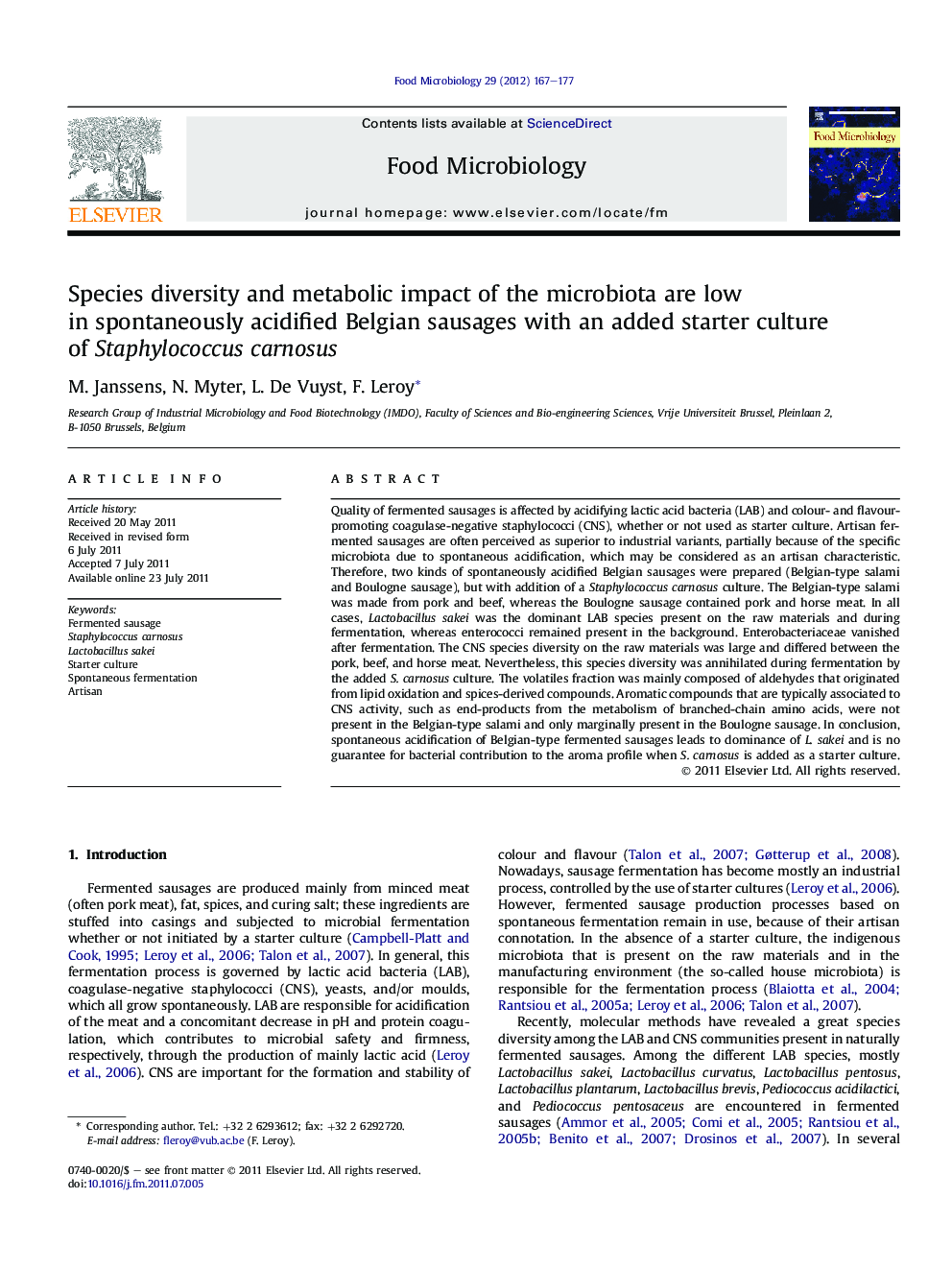| کد مقاله | کد نشریه | سال انتشار | مقاله انگلیسی | نسخه تمام متن |
|---|---|---|---|---|
| 4363077 | 1301538 | 2012 | 11 صفحه PDF | دانلود رایگان |

Quality of fermented sausages is affected by acidifying lactic acid bacteria (LAB) and colour- and flavour-promoting coagulase-negative staphylococci (CNS), whether or not used as starter culture. Artisan fermented sausages are often perceived as superior to industrial variants, partially because of the specific microbiota due to spontaneous acidification, which may be considered as an artisan characteristic. Therefore, two kinds of spontaneously acidified Belgian sausages were prepared (Belgian-type salami and Boulogne sausage), but with addition of a Staphylococcus carnosus culture. The Belgian-type salami was made from pork and beef, whereas the Boulogne sausage contained pork and horse meat. In all cases, Lactobacillus sakei was the dominant LAB species present on the raw materials and during fermentation, whereas enterococci remained present in the background. Enterobacteriaceae vanished after fermentation. The CNS species diversity on the raw materials was large and differed between the pork, beef, and horse meat. Nevertheless, this species diversity was annihilated during fermentation by the added S. carnosus culture. The volatiles fraction was mainly composed of aldehydes that originated from lipid oxidation and spices-derived compounds. Aromatic compounds that are typically associated to CNS activity, such as end-products from the metabolism of branched-chain amino acids, were not present in the Belgian-type salami and only marginally present in the Boulogne sausage. In conclusion, spontaneous acidification of Belgian-type fermented sausages leads to dominance of L. sakei and is no guarantee for bacterial contribution to the aroma profile when S. carnosus is added as a starter culture.
► Lactobacillus sakei spontaneously dominates microbiota of Belgian fermented meats without added lactic acid bacteria.
► The raw materials display a large bacterial species diversity.
► Staphylococcal species diversity is annihilated during fermentation by the added Staphylococcus carnosus culture.
► Spontaneous acidification is no guarantee for bacterial contribution to aroma when S. carnosus is added as starter culture.
Journal: Food Microbiology - Volume 29, Issue 2, April 2012, Pages 167–177